Ukraine president Volodymyr Zelensky challenged by return of domestic political troubles
Before Russia’s invasion, the Ukrainian President’s approval rating was plummeting amid questions of corruption. A year later, those issues have resurfaced.
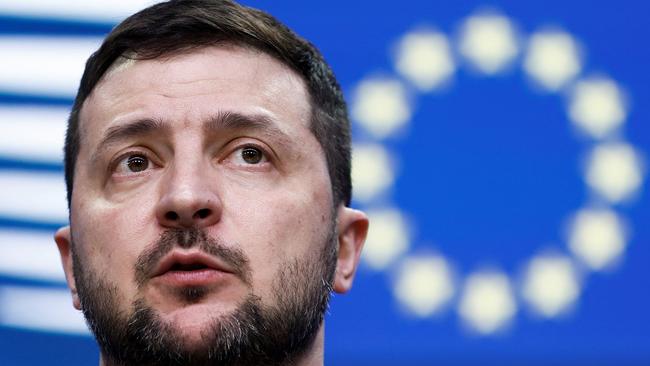
This time last year, Ukrainian President Volodymyr Zelensky dismissed the idea Russia would invade. His approval rating was falling. His government was pursuing a political rival on treason charges, to the dismay of Western allies.
Then, on February 24, Russia invaded, and Mr Zelensky rallied the nation, remaining in Kyiv as the enemy bore down on the capital. A former comic, he became the global face of Ukraine’s sometimes improvised but thus far successful resistance, securing weapons and billions in aid from initially reluctant Western backers.
Around the world, he has won support for the notion that the Ukrainian fight is both just and a line in the sand against Russian aggression toward its neighbours on Europe’s border. In a surprise visit to Kyiv on Monday, President Joe Biden reaffirmed US support in a dramatic show of solidarity with Mr Zelensky.
But back home, the politics of the pre-war period are returning for the 45-year-old president.
Corruption, a perennial problem in Ukraine, has come back into view in recent weeks. Mr Zelensky has fired nearly a dozen senior officials for alleged schemes such as marking up the prices of eggs and other food procured for the military. One person whose home was raided by security services was a politically connected tycoon and one-time supporter of Mr Zelensky’s.
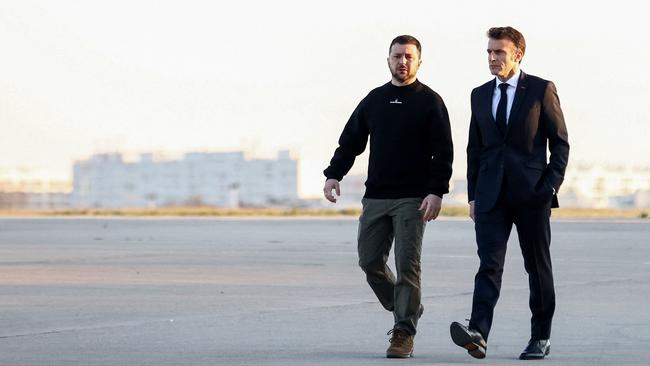
A close ally of the president said the defence minister, well liked by Western partners, was on his way out in connection with a corruption scandal under his watch, but in the end he stayed.
Opponents say Mr Zelensky’s grip on the media has a whiff of authoritarianism. General Valeriy Zaluzhniy, the popular chief of Ukraine’s armed forces and a potential political rival to Mr Zelensky, needs the president’s sign-off for media interviews but rarely gets it, according to people familiar with the matter.
At the start of the war, a presidential decree mandated that Ukraine’s main news channels broadcast identical content, and they heavily feature government officials. Opponents of Mr Zelensky say it constitutes an effective monopoly in a country that relies predominantly on TV for its news.
Mr Zelensky’s approval ratings are still high, but much of that support is conditional, according to political analysts.
“Am I satisfied with him as president? I don’t ask myself that question, ” said Kostyantyn Petrushevskiy, a former colleague of Mr Zelensky’s during his comedy acting days.
“I’m ready to create a religion in the name of Zelensky and Zaluzhniy and become a pastor – until the end of the war.”
Such domestic issues could create problems abroad, especially if the front lines, which Russia has reinforced with tens of thousands of fresh troops, remain deadlocked. Some Republican lawmakers have questioned the level of spending on Ukraine. Republican house Speaker Kevin McCarthy will need to win over some sceptics in his party, or rely on votes from Democrats, to pass further aid packages.
“The fact that we have such broad bipartisan support is, in part, a result of the way he’s sold the cause and become kind of the face of the cause for other countries,” Republican Senate Minority Leader Mitch McConnell said in an interview. Senator McConnell said he has advised Mr Zelensky that to shore up support in congress, he needs to tackle corruption and reach out to Republican lawmakers who may be wavering.
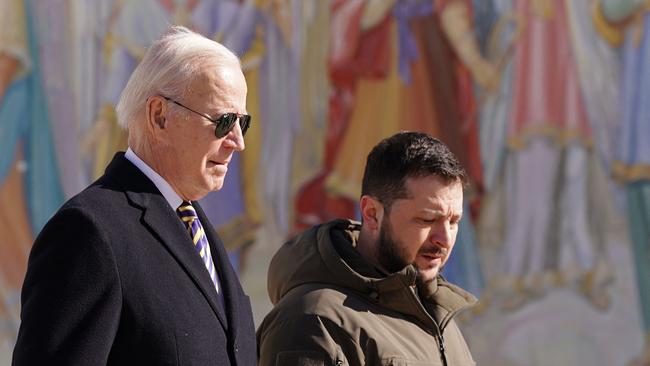
A Western diplomat in Kyiv said it was important initially for Mr Zelensky to mobilise the West, but if he struggles to maintain the momentum then “all the dirt will come back: the corruption allegations, the political opponents, the messy reform process”. Mr Zelensky’s popularity had been flagging before Russia invaded. Ukrainians had elected him in a landslide in 2019, impressed by his plain speaking about the ills of his country, particularly corruption, his lack of political baggage, and his pledge to end a years-long conflict with Russian proxy forces in eastern Ukraine.
But his charisma only carried him so far. Western officials privately expressed disappointment that he wasn’t delivering on his campaign against corruption. His efforts to strike a deal with Russia to bring peace in eastern Ukraine stalled as Moscow sought to use its control there to revive its historical claim to Ukraine.
As Russia built up troops around Ukraine in late 2021, Mr Zelensky played down the threat and told Ukrainians not to panic. In January, pro-Western former president Petro Poroshenko appeared in court on treason charges he described as trumped up. Trust in Mr. Zelensky had slid to 28pc of the population, according to a survey by the Kyiv International Institute of Sociology, a polling firm tied to a Kyiv university.
When Moscow invaded, Ukrainians picked up whatever weapons they could get their hands on to help the army defend their towns and villages.
Amid reports that a Russian assassination squad was preparing to assault the presidential compound, Mr Zelensky spoke to European leaders by video. “This may be the last time you see me alive,” he told them, a statement one senior European diplomat said swayed the leaders to pass, days later, a sanctions package targeting Russia. His decision to stay in Kyiv as Russians closed in garnered him respect and support from abroad.
Western assessments that Russia would take Kyiv in days were proven wrong, thanks to strong Ukrainian resistance. But Mr Zelensky needed help from the West.
On a phone call with then British prime minister Boris Johnson pleading for more military support, he broke into a rendition of a Beatles song. “All you need is N love!” he sang, referring to the NLAW antitank weapon the UK had delivered to Ukraine, according to a UK official who heard the call.
The UK soon shipped thousands more antitank weapons to Ukraine, helping to repel a Russian armoured assault on Kyiv, and has since led the way in providing heavier and more advanced weaponry.
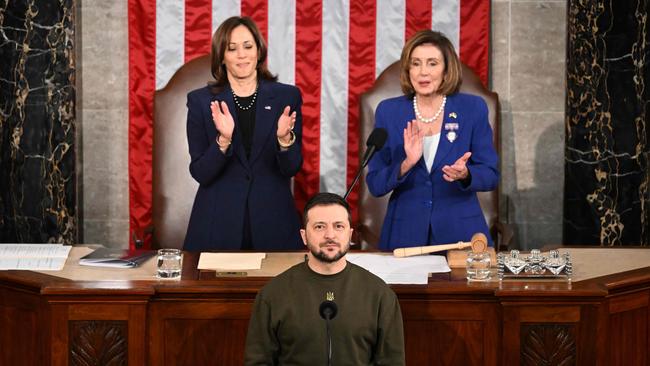
At home, Mr Zelensky won over some former critics, and his popularity soared. He started giving nightly video addresses. Senator McConnell, a history buff, began referring to him in speeches on the Senate floor as “Churchill in a T-shirt”. Republican senator Josh Hawley, who opposes aid to Ukraine, is unmoved by Mr. Zelensky’s appeals. “He’s trying to look out for the interests of his people who are being invaded, so that’s all fine,” he said. “We’ve got to make our own judgment about what’s good for our people and our interests.”
He said Europeans should take “first responsibility” for providing conventional arms.
Mr Zelensky also has tried to cultivate support from regular citizens in the West. “We were looking for all stages and all audiences, everywhere,” said Serhiy Leshchenko, a former journalist who joined the president’s team last March.
“Movie festivals, book exhibitions, energy-sector conferences, anything.” In June, Mr Leshchenko reached out to a friend, who helped arrange a video appearance for the president at Glastonbury music festival in England. Mr Zelensky urged revellers there to “put pressure on all the politicians you know to help restore peace in Ukraine”.
Mr Zelensky’s style at times has irked supporters. Mr Biden rebuked Mr Zelensky during a phone call in June when the Ukrainian president was pushing for extra aid, according to several US officials, who added that the incident did no longstanding damage to their relationship. Mr Zelensky’s spokesman didn’t respond to requests for comment.
In Germany, two government officials said there is a sense among some west European governments that Mr Zelensky has been trying to drag the U.S. and its allies into the war, not only by seeking offensive weapons systems that could be used on Russian territory, but also with his claims that Russia had fired missiles into or over North Atlantic Treaty Organisation territory.
“I don’t blame Zelensky,” one of the officials said. “In his place, we would do the same.”
In the US, aid packages to Ukraine had drawn broad bipartisan support, but future packages must pass both the Senate, led by Democrats, and the House, where Republicans now have a slim majority. Some Republicans are opposed to spending taxpayer dollars in Ukraine, citing concern about corruption and arguing that the money could be better spent domestically. American officials responsible for tracking more than $US110 billion in US aid to Ukraine are preparing to deploy auditors and investigators into the war zone, though they have thus far not claimed any major fraud or illegality.
On a December trip to Washington – his first trip abroad since the start of the war – Mr Zelensky tried to sway sceptics in an address to congress. He spoke about his visit the day before to the embattled eastern city of Bakhmut, presenting a flag signed by Ukrainian soldiers there. His audience in the packed chamber gave him multiple standing ovations.
In interviews, soldiers in that city said the president had visited troops for nearly half an hour as explosions rang out in the distance, motivating them to keep defending Bakhmut.
“The fact that he came personally convinced us that we wouldn’t give up the city without a fight,” said Yuriy Syrotiuk, a 47-year-old grenadier who has been defending Bakhmut since June.
In congress, Mr Zelensky said Ukrainians don’t expect US boots on the ground, and that any US aid would be used responsibly and accounted for.
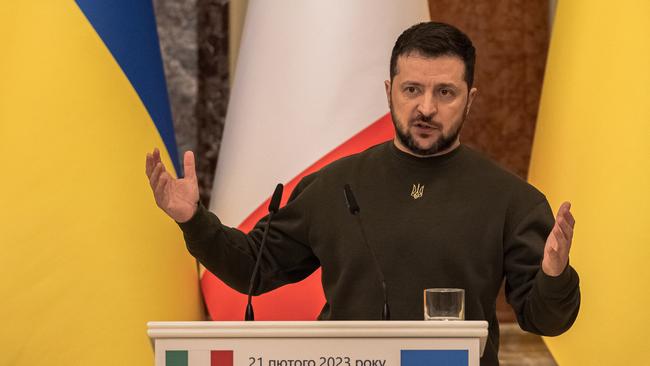
In Ukraine, though, media reports about alleged corruption were piling up. In a video address in January, Mr Zelensky announced a fresh drive against graft.
He removed nearly a dozen senior officials, including the deputy head of his administration, who was photographed driving a Porsche allegedly belonging to a businessman and was accused of appropriating a sport-utility vehicle donated to deliver aid. That official denied wrongdoing. The country’s deputy infrastructure minister was caught accepting a bribe of $US400,000, according to Ukrainian law enforcement, which detained him. His lawyer said he would fight the allegations in court.
Security services raided the home of billionaire Ihor Kolomoisky, a former political backer who owns a television station that helped vault Mr Zelensky to stardom. Officials said they had found evidence of misappropriation of funds at a state-owned oil company once controlled by Mr Kolomoisky, who hasn’t commented on the raid.
Mr Kolomoisky had been placed under US sanctions in 2021 for alleged financial wrongdoing at a bank he once controlled, which he denied.
Some US lawmakers have praised Mr Zelensky’s efforts, noting that the corruption allegations weren’t associated with Western funds or weapons deliveries.
Fighting corruption also is popular at home, given that tens of thousands of Ukrainians have been killed or injured in the war and still more are enduring severe economic constraints.
In November, the president publicly criticised Kyiv Mayor Vitali Klitschko, a former heavyweight boxing champion with a large fan base and a good rapport with Western officials, accusing his office of poor accounting and failing to supply power and heating hubs for city residents left without electricity.
Mr Klitschko denied the accusations. “I don’t want to engage in political battles, especially in the current situation,” he said in his own video address. “I have things to get on with.”
Max Colchester, Laurence Norman, Vivian Salama and Bojan Pancevski contributed to this article.
The Wall Street Journal


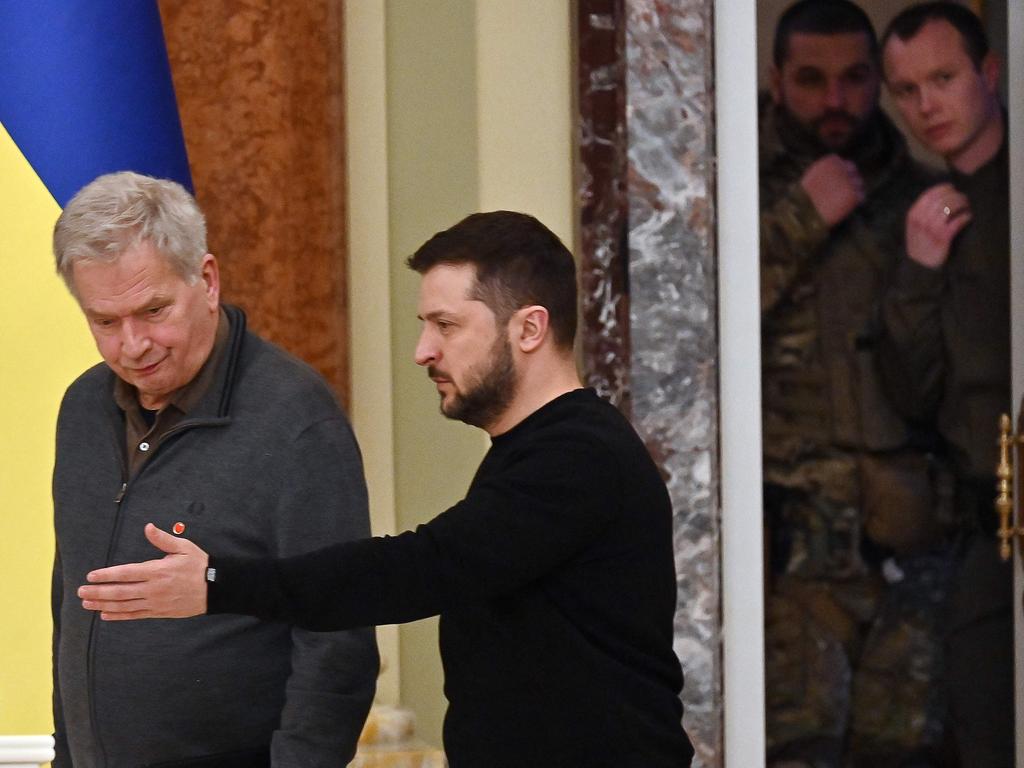
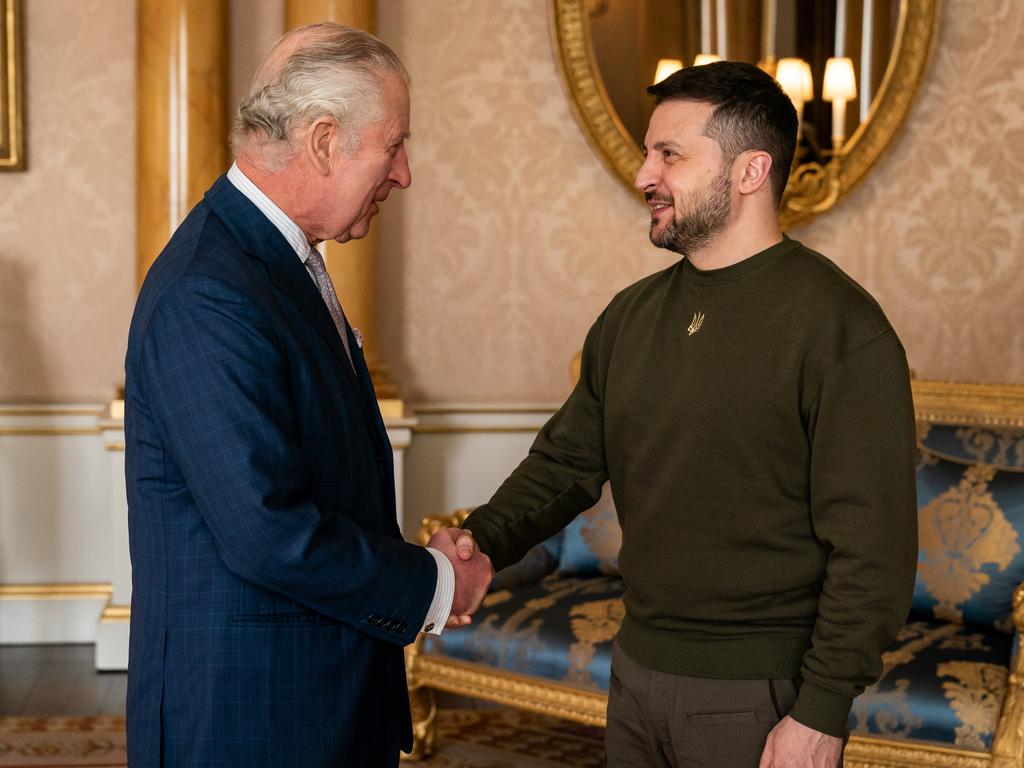
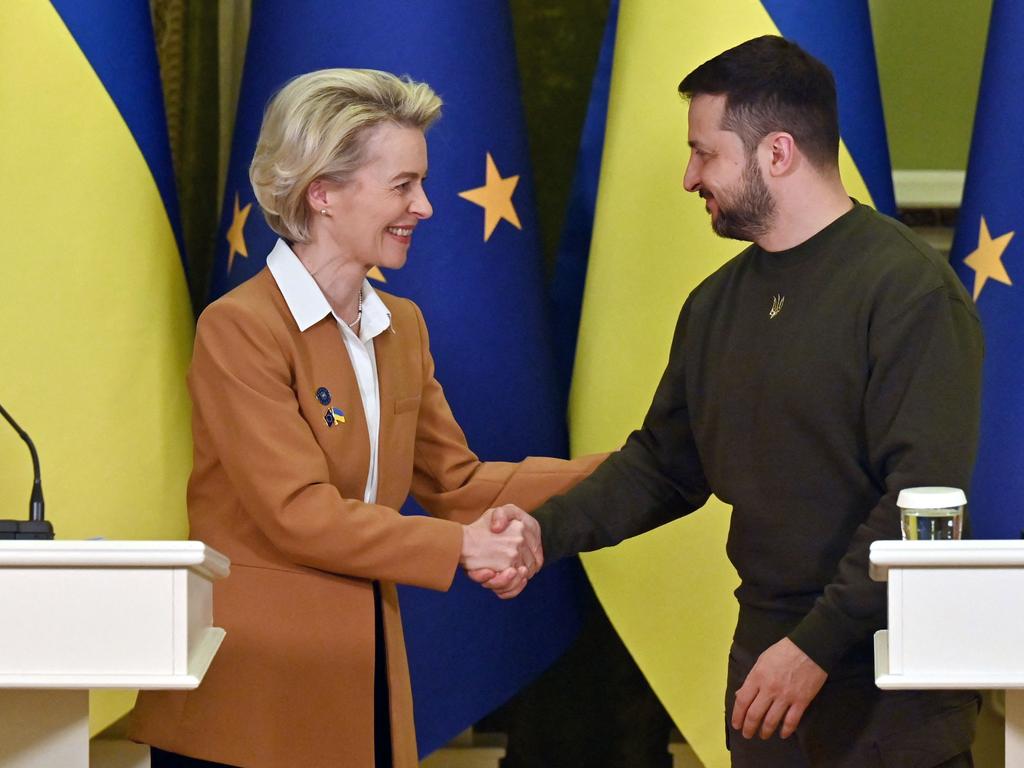
To join the conversation, please log in. Don't have an account? Register
Join the conversation, you are commenting as Logout